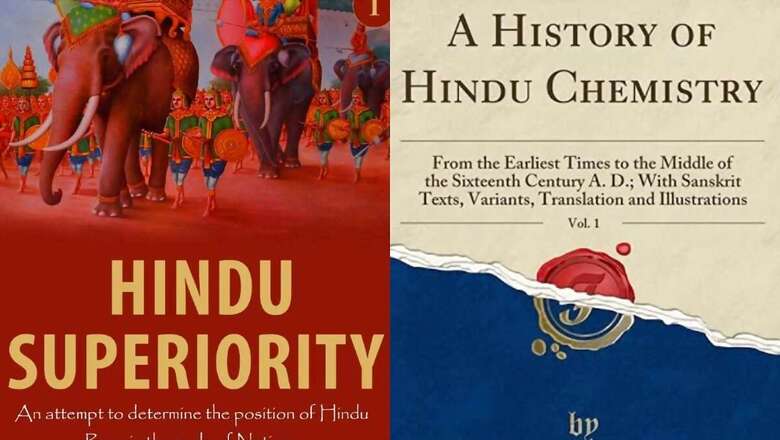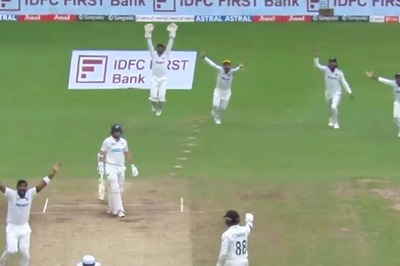
views
In India, not so long ago, politics and elections were relatively simple. Based on an ideology, political parties assembled their teams, mobilised cadres, announced their candidates and took to the campaign trail. Now, the quest involves having a book or a series of books on the party’s ideology. It is now about dominating the national narrative, controlling intellectual spaces, especially the ecosystem of books, which has mostly been occupied by the Left and its ideas.
As a part of “decolonisation” and to counter Left-centric and “western” influences, the RSS and like-minded organisations are building the new right-wing ecosystem of books. Multiple publishing units, which are directly linked or affiliated or indirectly associated with them through their ideology, have been a part of this movement.
Prajna Pravah, the specialised unit of the RSS that generates nationalist content, has taken a lead role in this movement; and there are units like Bharatiya Itihas Sankalan Yojana Samiti that generate content on Indian history. The RSS has 21 publishing units, including six by Prajna Pravah.
Apart from several pro-nationalism and, as RSS calls them, “pro-Bharat” and “deshi” publishers coming in to publish such books, the ecosystem has also developed its own platform for such books – Hindu eShop. It works like Amazon or Flipkart, where books can be ordered and delivered at home. There are some more such small startups that promote pro-Hindu books. But Hindu eShop is the biggest, with books on topics ranging from ‘ghar wapsi’ to ‘love jihad’ to ‘dharma yoga’ and ‘Hindus in Hindu Rashtra’ to ‘India’s strategies for information war & cyber deterrence’ to ‘India’s nuclear titans’.
Movement to generate nationalist content
Dattatreya Hosabale, RSS general secretary, while addressing a book launch programme in Delhi last week said, “The British left India, but their agents are still here. Education spaces like universities and the likes of academics, professors, authors, historians, judiciary are still dominated by the same western/European thought process and ideas. To decolonise people’s minds, we need to free the space for books that will have nationalist content.”
The idea and concept of ‘decolonisation’ has been discussed through various RSS programmes and campaigns. “In the pre-Independence era, there was a lot of nationalist content. Books like A History of Hindu Chemistry by Prafulla Chandra Ray, Hindu Polity: A Constitutional History of India in Hindu Times by KP Jaiswal, History of Hindu Mathematics by Bibhutibhushan Datta and Awadhesh Narayan Singh, The Surgical Instruments of the Hindus: With a Comparative Study by Girindranath Mukhopadhyay and finally Hind Swaraj or Indian Home Rule by (Mahatma) Gandhiji – all had one common thing, that is Hindu or Hind. They were not associated with RSS or Hindu Mahasabha. They were all eminent personalities. The word Hindu or Hind used a prefix or adjective in the titles because of its cultural connect. But post independence, specifically post 1960, all these books disappeared from public discourse and libraries. Strangely, they went out of print or became unavailable,” said J Nandkumar, senior RSS functionary who heads Prajna Pravah.
“Western dominance came to the fore. The books I mentioned were written by them as a reaction to British dominance over our intellectual space. However, from 1960, that dominance started ruling the roost. Ideas like India was intellectually poor and never had any contribution to science and literature, were promoted. It took 60 years to get it back on track. The intellectual churning has started as people want to know,” Nandkumar said.
Pro-right ecosystem, Pro-Bharat space
Hundreds of books in the last two years, mostly in Hindi, which deal with India’s culture, eminence, science, history and tradition have been published, as part of an effort by the RSS to ‘decolonise’ Indian minds. Apart from senior functionaries like Nandkumar, Ram Madhav, Sunil Ambekar among others, who wrote such books, the organisation has directly or indirectly been involved with like-minded senior academics, economists, scientists and journalists to write books highlighting India’s “ancient glory and tradition”.
“In pre-independence India, there was a vibrant space for nationalist thinkers and authors. There was a rush of ideas coming from non-Left intellectuals ranging from Aurobindo Ghosh and Swami Vivekananda to Lajpat Rai and Mahatma Gandhi. However, the non-Left space was wiped out after Independence. From the mid-1950s, the country’s narrative was controlled by the Nehruvian Left and Marxist Left. The whole range of non-Left historians, thinkers, writers, academics, scientists were hounded out. Historians like RC Majumdar, economists like BR Shenoy were sidelined and then thrown out of the system. It was only in the late-1980s that a few “rebels” like Arun Shourie and Swapan Dasgupta began to push against the Left-dominated system,” said economist and historian Sanjeev Sanyal.
“Economic liberalisation happened in India because of a crisis and not a change in the intellectual landscape. However, even as economic thinking started to change in the 1990s, the cultural space was still dominated by the Left. Non-left writers like us still faced great difficulty finding a publisher. In 2006-07, when I wrote Indian Renaissance: India’s Rise after a Thousand Years of Decline, it was still one of a handful of unapologetically Right-oriented books. The cultural Right took time to gather steam. In fact, the Ram Janmabhoomi movement did not happen in the cultural or intellectual space, but in the political space. The tide only turned after 2010,” said Sanyal, who is a member of the Economic Advisory Council to the prime minister.
Rising curiosity
The RSS has now started online and offline libraries for ‘pro-Bharat’ books. They are building more such sites and spaces for nationalist content. Books that went out of print or are unavailable are being brought back in PDF formats, while some are being reprinted.
Ratan Sharda, author and RSS ideologue, said: “Even as there is a portrayal of non-Leftist books or ideas as non-intellectual, now there is enough curiosity on the ground. People want to understand and know about the RSS. There was a time before 2010-12, when we never found a publisher to print our books or to reprint some of the old books written about India, tradition and culture. Those books were not banned, but were made to systematically vanish from public discourse. This was the time when authors like Amish Tripathi and others started self-publishing. Now, we have authors queuing up for commissioning books about the Hindu way of life, Bharat and about RSS.”
“There are multiple platforms and publishers that have stocked pro-Hindu or, as people call them, right-wing books. The ecosystem is functional. However, during that era we are talking about, the folklores survived. That is how Indianness survived among the people,” he added.
The RSS also has its own publication houses, while some are indirectly associated through ideological belief. “We have published about 50 books in the last two years that showcase Bharatiya history, culture and tradition. These books by eminent authors bring to light the unknown facts about our glorious past and infuse a feeling of pride in every Bharatiya,” said Prabhat Kumar of Prabhat Prakashan.
“Multiple books have been written in regional languages, where some have been translated into Hindi,” said a senior functionary of the RSS, elaborating on how the organisation is working “diligently” to build a stock of India’s literature as it believes India’s academia, literature and institutions have been influenced by the Left or Left liberals or by “motivated and agenda-driven” people.
“In India, people who cannot speak in English are not considered intellectuals. English books, which are sold in Khan Market, are believed to be the epitome of intellect and knowledge. We need to break this colonised mindset. The process might be slow, but we need to be systematic. Many senior economists, bureaucrats, scientists and academics have agreed to our requests to write books that bring back the nationalism in us and make us proud of our country,” said the senior functionary.
Apart from books in Hindi and other regional languages, some books have also been translated in Urdu like the Urdu translation of Samaveda by Bollywood writer, director and producer Iqbal Durrani. RSS chief Mohan Bhagwat launched this book early this year in Delhi.


















Comments
0 comment